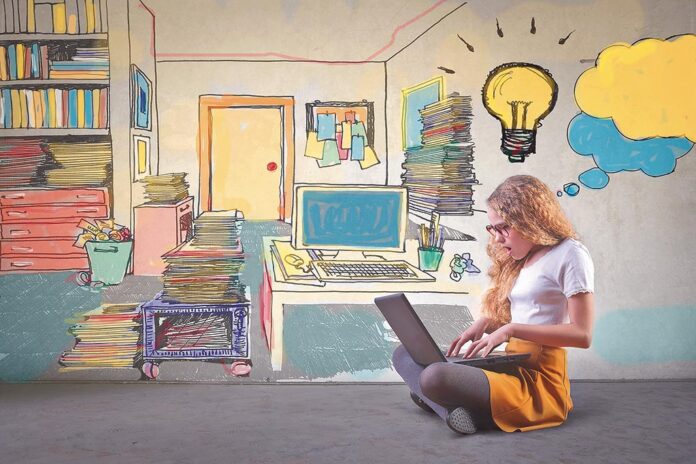Once the excitement of summer break begins to fade, many parents begin hearing the same grievance on repeat. “I’m bored” is a common anthem of kids on summer break. And while it can feel a bit uncomfortable to experience boredom, studies show there can be many benefits to experiencing a bit of boredom. When navigated effectively, boredom can be a springboard for a child’s creative process, as well as increase their internal locus of control. Here are some tips on how parents can work with their child to harness the unexpected powers of boredom.
Be proactive
I find that it’s often not the experience of boredom itself that creates issues in a family, but the negative cycle of interaction that can develop as kids come to parents with their feelings of boredom. Being proactive can be a helpful way to help kids begin to manage their feelings of boredom in increasingly independent ways. I recommend parents sit down and create a bored bucket with their child and collaboratively come up with multiple ideas of projects and activities kids have available to them when they’re feeling bored this summer. When kids do come to you when they’re feeling bored, you can refer them to their bored bucket so they can pick an activity. If you find yourself giving many ideas and your child is rejecting them, be aware that your child might just want your attention. In which case, set a limit by letting them know when you will be available to help them next and encouraging them to choose between a few agreed-upon options in the meantime.
Encourage creativity
One important reason we don’t necessarily want to avoid feeling bored is that boredom can be the birthplace of many creative endeavors, such as playing with toys in new ways or imagining new games. Kids, as well as adults, can also experience a sense of calmness (sometimes referred to as a state of flow) when becoming fully enveloped in an activity. That being said, certain toys can be more facilitative of a creative process than other toys. To maximize the potential benefits of boredom, I recommend parents ensure access to a variety of expressive toys, such as developmentally appropriate art supplies, neutral-looking doll characters and accessories, puppets, blocks, toy cars and animals, etc. Target toys that could be used in many different ways and allow for a degree of user interpretation or self-agency.
Routine, routine, routine
If kids are reporting feeling bored very frequently, this could be a sign of a more persistent state of dysregulation. Kids experience time differently than adults (time goes by much slower) and are still learning to self-manage and self-regulate. Frequent feelings of boredom could indicate a need for more structure and predictability in the day, which can support your child’s regulatory capacities. I recommend parents provide a certain degree of structure and routine over the summer (a visual chart in a common area can be great to help with this) while still leaving time-limited pockets for more unstructured time. Kids can feel more empowered to take advantage of their free time when they know it won’t last all day, thus making feelings of boredom much easier to tolerate and regulate. Striking the best balance of structure vs. free time will ultimately look different for every kid and family, so get curious as to what works best for you.
As always, don’t hesitate to reach out to your child’s Pediatrician or a mental health professional if you have concerns about your child’s mental, emotional, or behavioral health.


























